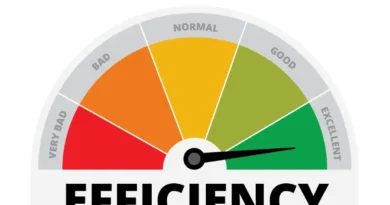Tips for Reducing Water Usage on Landscaping
Conserving water when maintaining a beautiful and healthy landscape can help lower your overall water bills. Artificial grass can reduce water consumption on landscaping as it doesn’t require regular watering. Here are tips to minimize water usage while maintaining a stunning outdoor space:
Add Compost and Mulch
Compost enriches the soil and enhances water retention, while mulch retains soil moisture by reducing surface evaporation. By incorporating these two elements, you can create a water-efficient, low-maintenance, cost-effective landscape. They create a fertile ground that conserves water while encouraging healthy plant growth.
By providing nutrients, improving soil quality, and reducing water usage, compost and mulch offer a win-win solution for your garden and the environment.
Use a Drip Irrigation System
Setting up a drip irrigation system is a practical solution that can help reduce water usage on your landscaping. This method involves placing small hoses or pipes throughout your yard, delivering water directly to your plants’ roots. This controlled delivery reduces water wastage through evaporation or runoff.
Drip irrigation systems are great for delivering water right where it’s needed, directly to the base of each plant. This precision helps reduce the risk of over or under watering, while also conserving soil nutrients, minimizing weed growth, and helping to prevent soil erosion. However, drip irrigation isn’t the only option. Sprinkler systems, soaker hoses, and even smart irrigation setups can also be effective, depending on your garden’s size and layout. If you’re unsure which system is right for your needs, it’s worth taking the time to learn more about the pros and cons of each to make an informed choice for your landscape.
Water the Soil, Not the Leaves
By directing the water to the soil, you can prevent unnecessary evaporation and make sure the water goes where it’s most needed. The water penetrates deep into the ground, where the roots can easily absorb the moisture and use it more efficiently. This technique conserves water and can promote root growth and disease resistance.
Avoid Overwatering
Overwatering wastes water and causes harm to your plants in the long run. When soil is constantly saturated, it can lead to root rot and other fungal diseases. Your plants may also develop shallow roots, making them less resilient during drought. Understand the specific watering needs of each type of plant, use a mulch to retain moisture, and check soil moisture levels regularly to avoid watering unnecessarily.
Adjust Watering Schedules
Adjusting watering schedules allows you to efficiently manage water usage while promoting your landscape’s health and vibrancy. Identify the ideal times to water specific plants and use tools like timed sprinklers to enhance water efficiency. Schedule watering early in the morning or later in the evening when temperatures are cooler. Doing this reduces evaporation, allowing more water to be absorbed by plants.
Group plants with similar watering needs and monitor soil moisture levels to help prevent over-watering or under-watering. Underwatering can lead to stress on plants and make them more susceptible to damage from pests and diseases.
Install Artificial Grass
Artificial turf is an excellent solution for lowering water consumption and still having a beautiful landscape. Unlike natural grass, artificial grass is low maintenance and doesn’t require constant watering to maintain its green and luscious appearance. This conserves water and can save time, money, and energy spent on lawn maintenance. Find a reputable artificial turf company to get high-quality products and installation services.
Reduce Water Usage on Landscaping
Minimizing water usage in landscaping can create a more sustainable future. This practice conserves water and can help lower your utility bills. Embrace practices such as installing artificial grass and utilizing efficient irrigation methods to reduce water waste. A local artificial grass installation company can help you bring your water-conserving landscape vision to life.


